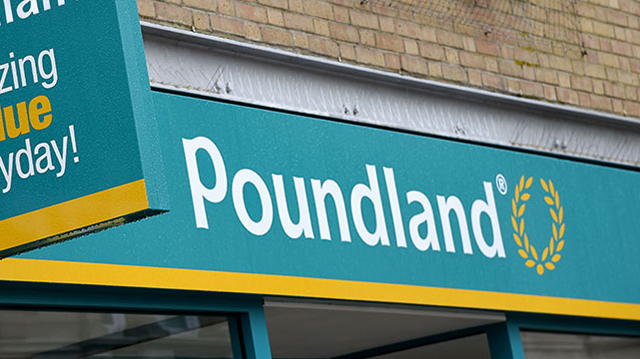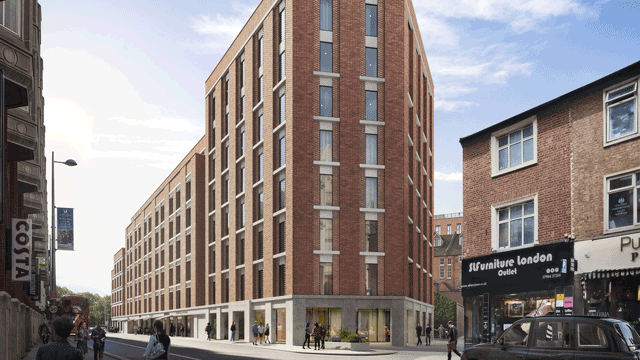Chancellor Rachel Reeves has announced a £39bn commitment to a new Affordable Homes Programme, stretching from 2026 to 2036, as part of the Spending Review.
Framed by the government as “the biggest boost to social and affordable housing investment in a generation”, this decadal pledge aims to turbo-charge Britain’s housing supply, support housing associations and councils, and edge closer to the manifesto goal of 1.5 million new homes by 2030.
What the package includes
The government will provide £39bn in capital grants over the next 10 years to support the construction of new social and affordable homes across England.
Funding will be directed not only to local authorities and housing associations, but also to private developers, with the goal of unlocking thousands of units that have been secured through planning obligations but remain unbuilt.
In a move long requested by the sector, the chancellor confirmed a new 10-year rent settlement, allowing social landlords to raise rents annually by up to CPI+1%, which will help stabilise long-term income streams and enhance investment viability.
This housing investment forms part of a broader £113bn capital expenditure package announced in the review, which also includes long-term commitments to transport, nuclear power, health, and defence.
The property sector has broadly welcomed the announcement. Melanie Leech, chief executive of the British Property Federation, said: “With really tough choices to be made in the Spending Review we are delighted that the government has prioritised the delivery of affordable and social housing and that it is investing significant additional sums to support a sector that has faced tough headwinds in recent years.
“The government has also delivered the 10-year rent settlement which we and the wider sector have been advocating for a long time. This is a significant step forward to help the sector to plan with more certainty and to help unlock the huge amount of long-term private capital such as pension funds, that wants to invest in genuinely affordable homes.”
Justin Carty, executive director of residential investment advisory at CBRE, echoed this optimism, and said: “Today’s announcement that £39bn is being allocated to affordable housing is a much-needed injection for the sector. This, alongside the announcement of a long-term rent settlement, should be the catalyst for unlocking and driving forward affordable housing delivery.
“The sector has faced a myriad of challenges, that has seen affordable housing delivery, particularly in London, stall, and there are still significant planning and delivery challenges that developers are facing, which need to be overcome to meet housing needs. This announcement is an excellent boost for the sector and a positive step forward.”
Housing jigsaw
Neil Kelly, head of land and development at Bidwells, said: “It is a relief to see the government allocate capital funding towards the delivery of affordable and social housing, which are both chronically undersupplied but also vital components of the housing jigsaw. A key question is whether the funding will be available for use on affordable housing delivered through section 106 agreements. If not, the impact of the funding will be severely limited, as it won’t actually make any impression on resolving the current delivery issues faced on the ground.”
Kelly also urged more comprehensive support, and added: “The government should also look to provide more support across a range of tenure types to address the crisis at multiple levels. The reintroduction of a policy like Help to Buy, alongside Labour’s changes to the National Planning Policy Framework, offers real potential in terms of solving the housing crisis and accelerating delivery.”
Adding a London perspective, Olivia Harris, chief executive of Dolphin Living, said: “The significant increase in investment to unlock more affordable housing, along with measures to provide greater long-term certainty to the sector through the 10-year rent settlement, are clearly very welcome. However, as ever, the devil is in the detail and we need to ensure that much of this investment is directed towards London, where the need is most acute, and it is most expensive to deliver new affordable housing.”
Paul Rickard, chief executive of Pocket Living, was similarly encouraged, said: “The measures announced today by the Chancellor are very welcome, especially the additional financial investments available to Homes England allowing enhanced financial support for our struggling SME housebuilding sector. The announcement of a 10-year £39bn affordable housing funding and rent settlement also provides much-needed clarity and capacity for the housing sector which should see a step change in the delivery of affordable housing.”
Rickard added a note of caution, and said: “We hope to see greater flexibility on affordable tenure to improve viability and address local housing need on a site-by-site basis and to ensure that the positive work to improve the planning system and support our SME housebuilders is most effective.”
Will Maby, partner in affordable housing at Rapleys, welcomed the long-term certainty and said: “What the affordable housing sector needed most from the Spending Review was certainty and funding. We got both of those… it represents a very real increase year on year for 10 years and a boost to the delivery programme that was sorely needed.”
However, Maby also added: “We would have liked more direct incentivisation for private investment into the sector and a join-up of housing and infrastructure announced. But compared with where we were just 18 months ago, funding has more than trebled annually.”
“Much-needed certainty”
Paul Dolan, chief executive of Riverside, described it as a “historic and ground-breaking funding settlement for social landlords” that will “give Riverside and the wider sector greater certainty over funding throughout the next decade.” He also called for dedicated funding for urban regeneration: “Dedicated regeneration funding can transform communities up and down the country.”
Highlighting the retirement living sector, Nick Sanderson, chief executive at Audley Group, cautioned: “While the government commits to housing investment for generations to come, it’s still turning a blind eye on the potential of specialist retirement living properties. The government can’t afford to ignore the sector’s ability to encourage downsizing, free up supply, and create movement up and down the ladder.”
Chris Baguley, managing director of Together, underscored the urgency of delivering homes: “The chancellor’s £39bn cash injection over the next 10 years is a significant boost to social and affordable housing in this ‘age of insecurity’… direct action like this is critical to help those at risk — and quickly.”
But he added that “more support for social housing developers and their trusted lenders is vital for ongoing projects, providing more affordable housing and community spaces where they are needed most.”
Richard Donnell, executive director of research at Zoopla, said: “Increased investment in affordable housing is vital but the costs of development are rising faster than sales values which is reducing the viability of building homes.”
Tom Dodson, chief operations officer at Better Green Living, added: “Labour must stop treating retrofit as an afterthought to new-build property. We need a bold, nationwide retrofit strategy backed by guaranteed funding and long-term targets.”
Wayne Douglas, managing director for City & Country, noted positive progress in planning reforms but said: “We also need to be far more reactive to the wider economic pressures that inhibit buyers. For the first time in decades, there is no government support in place to assist first time buyers.”
Chris Harris, chief operating officer at Dandara, echoed concerns around delivery: “The £39bn investment in affordable and social housing is especially encouraging. However, promising initiatives — such as deploying AI to support planning reform — will only succeed if backed by properly resourced local planning departments.”
Omar Al-Hasso, chief executive of SimplyPhi, welcomed the “historic move” but said: “The government must act with speed and urgency to develop a long-term strategy to address this crisis. More support and funding must be made available to local authorities to acquire and retrofit existing housing stock, and make this available both for temporary and long-term accommodation for those in need.”
On the delivery side, Craig Carson, managing director of Barratt West London, said: “This investment is a testament to the government’s commitment to reaching its target of 1.5m homes for this Parliament and will indeed get Britain building.”
David Campbell, chief operating officer of NHBC, called the announcement a “long-term targeted funding” opportunity that could “pay dividends in the long-term, for the industry, for local communities and for home occupiers”.
Finally, Jason Honeyman, chief executive of Bellway, summed up the mood among housebuilders: “We’ve been caught in a cycle where developers are delivering affordable homes, but due to underfunding, our housing associations have limited financial capacity. The government’s decision to confirm a 10-year rent settlement and double its investment brings much-needed certainty for developers and, crucially, unlocks high-quality homes delivered through section 106.”
Image © James Veysey/Shutterstock
Send feedback to Akanksha Soni
Follow Estates Gazette











